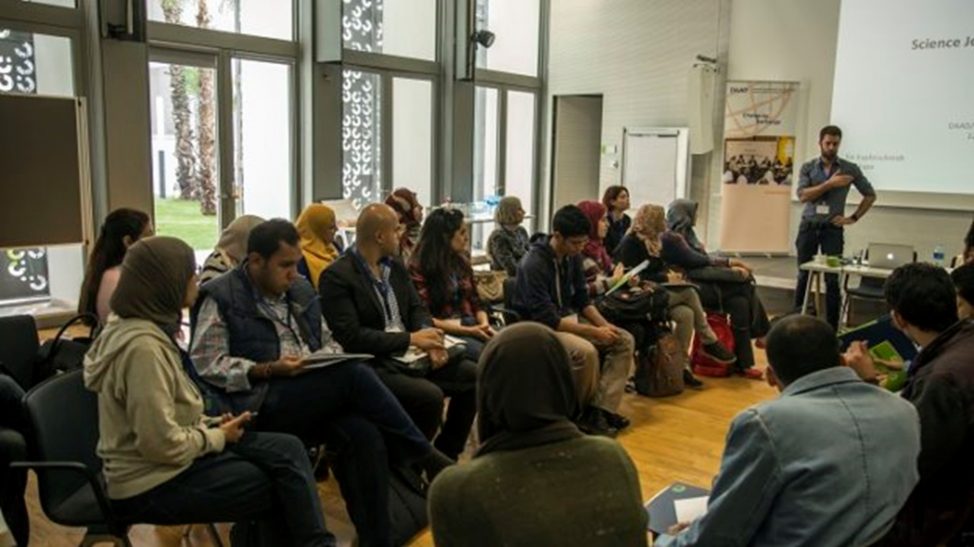“Scientific Storytelling” – Joint Workshop for Scientists and Journalists to Boost Science Journalism in Egypt

13 Egyptian scientists from various fields who are affiliated to Egyptian universities and research institutes, gathered at the DAAD Cairo on February 11, to participate in the first day of the workshop. Dr. Roman Luckscheiter, Director of DAAD Cairo Office, greeted the participants and introduced them to their trainers; Mrs. Kerstin Hoppenhaus and Mr. Kai Kupferschmidt. The first day was meant to be a preparation for them before meeting a group of journalists on the following day.
The scientists were invited to put themselves in the shoes of the journalists and realize how overwhelming it can become for a journalist when being overloaded with an abundance of scientific jargons especially when the latter lacks the scientific background. As a result, a distorted image of the scientific work may be produced, key facts may be neglected or inaccurate information may be conveyed. Scientists were trained on how to “talk science to non-scientists” and one way to do so is by pitching their scientific work in not more than 90 seconds without using any visual aids. A not very easy task for the scientists who are used to show figures and statistics and need time to deliver their message properly. In addition to that, their scientific message had to be clear by following the golden rule namely by minimizing the usage of jargons and abbreviations.
The highlight of the workshop was the second day when scientists and journalists met and learnt about the perception they have about one another. In the scientists’ point of view, journalists are only after ‘catchy’ news neglecting important research that may take place. On the other hand, journalists commented that scientists are not being able to communicate the story behind their scientific work in order to make it appeal the general public.
The journalists gave the scientists constructive feedback with regard to their 90 second pitch, highlighting the importance of using simple language and communicating the relevance of the scientific work for the people.
Last but not least, a final event will be held in June to present the outcome of the workshop to the public and exchange views regarding the experience gained.

















